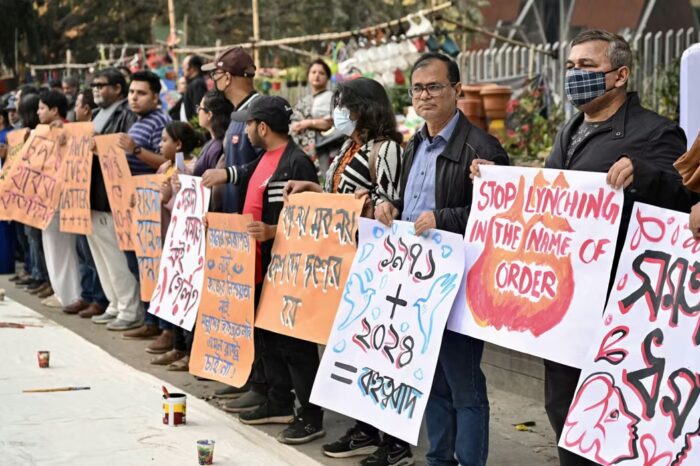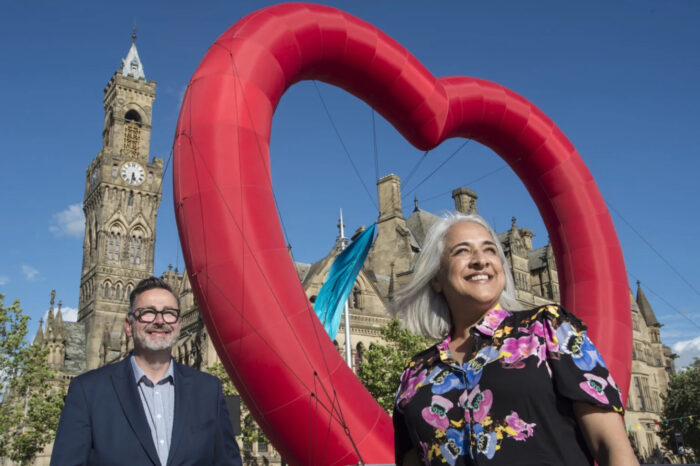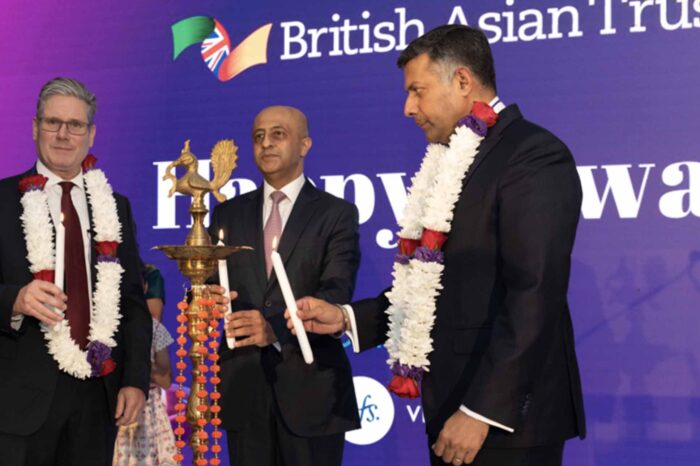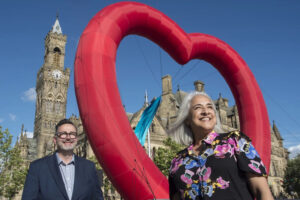
A landmark independent review of services provided by NHS Talking Therapies has identified that psychotherapy services need better tailoring to meet the needs of Black and minoritised ethnic groups.
Ten years of anonymised patient data found that historically, people from Black and minoritised ethnic backgrounds have experienced poorer access to, and outcomes from, NHS talking therapies. Over this time period, compared to White British groups, they are less likely to access services, tend to wait longer for assessment and to access treatments.
The data also showed that poor outcomes were faced by people from South Asian communities, in particular Bangladeshi groups. People of mixed ethnicity, mostly White and Black Caribbean, are the least likely to access these services.
The comprehensive assessment review – ‘Ethnic Inequalities in Improving Access to Psychological Therapies (IAPT)’, was undertaken in partnership with the National Collaborating Centre for Mental Health (NCCMH).
It noted poor outcomes can be tackled and even disappear when access is improved, and culturally sensitive therapy is provided. People from Black African backgrounds using IAPT services were sometimes more likely to improve and recover in comparison with White British people.
The new report from the NHS Race and Health Observatory calls on commissioners, clinicians, and healthcare organisations to address ethnic health inequalities. This can be done by improving resources and training to enhance understanding of mental health inequality, and by recruiting culturally sensitive and ethnically diverse therapists.
Launched in 2008, IAPT services were rebranded in January 2023 as the ‘NHS Talking Therapies for anxiety and depression’. The review references IAPT throughout and identifies a number of variable outcomes within minoritised ethnic groups who, overall, still fare worse when it comes to access, experience and outcomes for mental health conditions.
Despite this, the research found areas of good practice, improvements, and examples of effective support from Voluntary Community and Social Enterprise (VCSE) organisations and community partners.
The review calls for commissioners of NHS services to develop training to improve understanding of mental health inequality, particularly how it impacts people from black and minoritised ethnic backgrounds. It calls on service providers to ensure therapists are ethnically diverse, services are co-designed in partnership with different communities, therapists offer additional sessions if they need time to understand cultural differences, and for talking therapy services are promoted to underserved communities.
Findings from the mixed methods research, spanning 2008 to 2023, include feedback from focus groups involving people with lived experience, engagement with IAPT therapists, extensive data analyses including of datasets from NHS Digital, annual IAPT national reports, surveys, and a review of the literature.
The report will be launched at an event on Wednesday, 1 November, 2023 at the Royal College of Psychiatrists, where presentations on the key review findings will be outlined by researchers, people with lived experience, healthcare professionals, policymakers and community representatives.
Dr Habib Naqvi, chief executive of the NHS Race and Health Observatory, said: “We recognise there are still critical gaps in access and outcomes when it comes to mental health support and talking therapies, across different ethnic groups. There are many people from Black and minoritised ethnic communities struggling with their mental health, and yet they are less likely to be referred to talking therapies and have poorer experiences and outcomes once they are referred. It’s vital that we take a serious look at the findings of this review – reflect on what has been effective in the past, and address how service provision can be more inclusive and equitable across all communities.”
Among several challenges and barriers noted in the review is the clinical language used to describe mental health services including the term ‘IAPT’, the lack of cultural sensitivity, understanding around taboos and interpretation – including fear of interpreters keeping their information confidential.
Older people were often dependent upon younger relatives to interpret. A 26-year-old Pakistani male said: “Even though I can speak English my mum can’t, and I definitely don’t feel comfortable even taking her to see the doctor. I know she’d prefer there to be someone female translating for her, not her son, you understand. I mean it’s sometimes quite embarrassing, and this kind of service seems like one where privacy would be greatly needed.”
Other participants who held faith as important, expressed disappointment when therapists lacked understanding of the significance of religion and belief. For others, the negative associations with ‘madness’ led to thoughts of shame, guilt and the urge to conceal any pertinent mental health problems due to fears of being excluded by the community.
Also notable was the need for therapists to be educated and trained on the requirements of the population served, with characteristics such as ethnicity, age and gender, roughly matching the preference of the person receiving treatment. Digital communication was cited as a barrier for people who lack access to mobile phones or the internet, as was the lack of translated information from the service.
In some languages, the current language used in clinical terminology about mental health is different or non-existent.
The limitations of the IAPT, Cognitive Behavioural Therapy model, was also a cited factor. The model was perceived as Eurocentric and perceived as not based on people from minoritised ethnic groups’ ‘mental health concerns’ according to one participant who said:
“I don’t think those steps were made for people of colour. These are modelled upon White people, come on! Those are not models for people of colour, those are standard procedures that were not tried and tested or based on the context of what brown people face… like, immigration, detention centres, non-papers, those are our mental health issues.”
Predominately, therapists cited the additional time needed for outreach work, away from clinical work, was impacted by extra workload and the Covid pandemic.
The review outlines a series of recommendations and calls for actions that can be undertaken by commissioners and organisations providing mental health services. It found no evidence that talking therapies are unsuitable or ineffective for minoritised ethnic groups.
Professor Steve Pilling, Academic and Strategic Director of the National Collaborating Centre for Mental Health, said: “The results of this review show there is good evidence to provide people with effective mental health support, including those who are in the most underserved groups. We hope it will serve as a catalyst for practical and effective change which we are confident will be supported by effective monitoring of outcomes.
“Talking therapies are a crucial step on the road to recovery for people with mental health conditions and research consistently shows that getting prompt support is linked to better outcomes. It’s therefore vital that everyone has quick and easy access to this service regardless of their race or ethnicity.”
Dr Lade Smith CBE, President of the Royal College of Psychiatrists, said: “For far too long we have known that people from minoritised ethnic groups don’t get the mental healthcare they need. This review confirms that despite some improvements, it remains that, access, experience and outcomes of talking therapies absolutely must get better, especially for Bangladeshi people.
“There is progress, particularly for people from Black African backgrounds, if they can get into therapy, but getting therapy in the first place continues to be difficult. This review provides clear recommendations about how to build on the improvements seen. I hope that decision-makers, system leaders and practitioners will act on these findings.”
Although the ethnicity of the workforce is consistent with population demographics across England, the vast majority, 80% of IAPT staff are White and female. This lack of diversity and over representation of female therapists in the IAPT workforce can also affect engagement and uptake of treatment, particularly for men from Black and ethnic backgrounds.
This has been reported in feedback, some Urdu speaking male participants said: “It can be a cultural factor to want to cope alone due to the patriarchal nature of the community. Culturally, some men are still bound to not display their emotions because of a need to appear to remain strong for others.”
Steve Gilbert OBE, Co-Chair of the Race and Health Observatory, Mental Health Working Group, said: “People of Black or racialised ethnicity often face multiple barriers when they experience mental health difficulties. For too long there has been a lack of equity in access, experience and outcomes from talking therapies. Achieving timely access to talking therapies, designed to meet the needs of historically underserved Black and racialised communities, will improve countless lives. We welcome the opportunity to work alongside the National Collaborating Centre for Mental Health in setting out practical actions and recommendations for healthcare providers to address shortcomings.”








